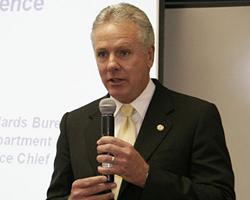President Barack Obama is calling for action to reform U.S. immigration policy. Mr. Obama says the U.S. immigration system is “broken and dangerous,” and the country’s borders are too vast for the problem to be solved only by building more fences.”In sum, the system is broken, and everybody knows it,” he said. “Unfortunately, reform has been held hostage to political posturing and special-interest wrangling, and to the pervasive sentiment in Washington that tackling such a thorny and emotional issue is inherently bad politics,” Mr. Obama added.Speaking at American University’s School of International Service, the president made his first major appeal for a comprehensive reform of the nation’s immigration policies.
 He did not announce any new initiatives on the issue, but called overhauling the U.S. immigration system “a moral imperative.”White House officials say the president’s decision to speak about the issue was influenced by several factors, including the state of Arizona’s recent passage of a tough law against illegal immigrants.Mr. Obama said inaction at the federal level has led to what he considers a bad law.”Into this breach, states like Arizona have decided to take matters into their own hands. Given the levels of frustration across the country, this is understandable. But it is also ill-conceived,” he said.The new law has been met with protests around the country, although polls show that a majority of Americans questioned support it.The president said a comprehensive solution is needed for America’s immigration problem. He sought to reassure those who want to get tough on illegal migrants that he does not support giving amnesty to people who are in the United States against the law.”Ultimately, our nation, like all nations, has the right and obligation to control its borders and set laws for residency and citizenship,” he said. “And no matter how decent they are, no matter their reasons, the 11 million who broke these laws should be held accountable.”
He did not announce any new initiatives on the issue, but called overhauling the U.S. immigration system “a moral imperative.”White House officials say the president’s decision to speak about the issue was influenced by several factors, including the state of Arizona’s recent passage of a tough law against illegal immigrants.Mr. Obama said inaction at the federal level has led to what he considers a bad law.”Into this breach, states like Arizona have decided to take matters into their own hands. Given the levels of frustration across the country, this is understandable. But it is also ill-conceived,” he said.The new law has been met with protests around the country, although polls show that a majority of Americans questioned support it.The president said a comprehensive solution is needed for America’s immigration problem. He sought to reassure those who want to get tough on illegal migrants that he does not support giving amnesty to people who are in the United States against the law.”Ultimately, our nation, like all nations, has the right and obligation to control its borders and set laws for residency and citizenship,” he said. “And no matter how decent they are, no matter their reasons, the 11 million who broke these laws should be held accountable.”
Mr. Obama also reassured pro-immigrant groups he has no intention of trying to round up and deport those who are in the country illegally.”They know it is not possible. Such an effort would be logistically impossible and wildly expensive. Moreover, it would tear at the very fabric of this nation,” said the president.
Mr. Obama urged U.S. lawmakers to have the political courage to address an important issue.Despite the president’s appeal, members of Congress, many of whom are seeking re-election in November, are not likely to take up the controversial issue of immigration reform this year.(VOA)


